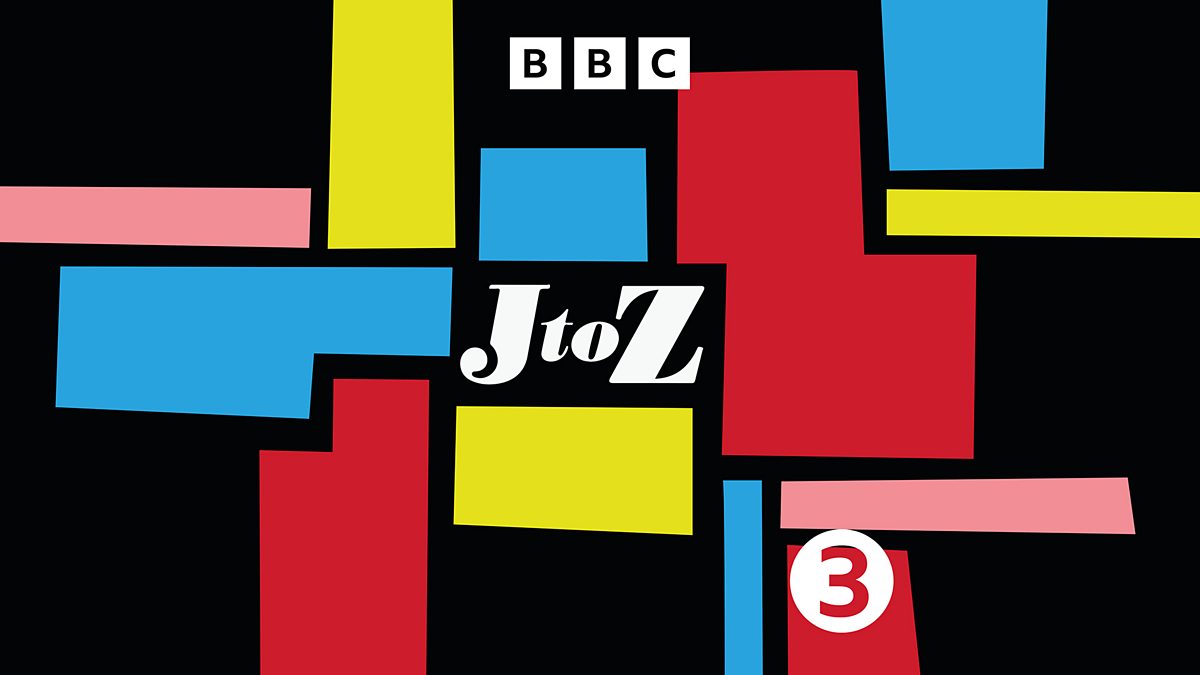Sat 7 March
5pm - J to Z
The programme that everybody loves. Everybody on here, that is.
On the eve of International Women's Day, Jumoké Fashola celebrates women in jazz. She is joined in session by vocalist and violinist Alice Zawadski, whose latest album, Within You is a World of Spring, draws from folk, alt-rock and other genres.
12midnight - Freeness
Corey Mwamba with improvisatory explorations within African avant-garde music, featuring a collaboration between South African musician Gugulethu Duma (aka Dumama) and Algerian-German composer and musician Kechou. Plus driving grooves from the new release by Wildflower and an electro-acoustic piece by Russian musician Ilia Belorukov, who makes music with percussion, field recordings and samples.
Wildflower is a trio including flautist Idris Rahman, who I believe is the brother of the well-known pianist Zoe Rahman.
Sun 8 March
4pm - Jazz Record Requests
Alyn Shipton presents requests for music by female composers, among them Mary Lou Williams, Peggy Lee, Geri Allen, Carla Bley and Maria Schneider.
People might want to stay tuned for The Listening Service which immediately follows JRR - Tom Service on the Helsinki-born woman composer Kaija Saariaho - whose music harks back to the halcyon period when most modern contemporary music sounded unambiguously modern, and sported a good, er, finish.
Next Tuesday's Radio 3 Lunchtime Concert, starting at 1pm, concludes with a selection of Chick Corea's Children's Songs, performed by pianist Gabriela Montero.
And at 9.30pm Radio 4 features the first of four programmes titled New Weird Britain - nothing to do with Boris Johnson or Priti Patel, but, it says:
Urban Hinterlands. John Doran goes in search of an underground movement of musicians blossoming in the margins of Britain. Today he seeks out the musicians who are managing to cling on to the edgelands of big cities.
I missed this the first time around. Maybe it will include the man whose name I forget who composed electronic music by recording the wailing sounds given off by barbed wire. These sounds are actually the ghost echoes of victims who died entangled, trying to gain political asylum in neighbouring pastures, and whose skeletons, some of them still wearing old school ties, weren't discovered until thousands of years after.
5pm - J to Z
The programme that everybody loves. Everybody on here, that is.
On the eve of International Women's Day, Jumoké Fashola celebrates women in jazz. She is joined in session by vocalist and violinist Alice Zawadski, whose latest album, Within You is a World of Spring, draws from folk, alt-rock and other genres.
12midnight - Freeness
Corey Mwamba with improvisatory explorations within African avant-garde music, featuring a collaboration between South African musician Gugulethu Duma (aka Dumama) and Algerian-German composer and musician Kechou. Plus driving grooves from the new release by Wildflower and an electro-acoustic piece by Russian musician Ilia Belorukov, who makes music with percussion, field recordings and samples.
Wildflower is a trio including flautist Idris Rahman, who I believe is the brother of the well-known pianist Zoe Rahman.
Sun 8 March
4pm - Jazz Record Requests
Alyn Shipton presents requests for music by female composers, among them Mary Lou Williams, Peggy Lee, Geri Allen, Carla Bley and Maria Schneider.
People might want to stay tuned for The Listening Service which immediately follows JRR - Tom Service on the Helsinki-born woman composer Kaija Saariaho - whose music harks back to the halcyon period when most modern contemporary music sounded unambiguously modern, and sported a good, er, finish.
Next Tuesday's Radio 3 Lunchtime Concert, starting at 1pm, concludes with a selection of Chick Corea's Children's Songs, performed by pianist Gabriela Montero.
And at 9.30pm Radio 4 features the first of four programmes titled New Weird Britain - nothing to do with Boris Johnson or Priti Patel, but, it says:
Urban Hinterlands. John Doran goes in search of an underground movement of musicians blossoming in the margins of Britain. Today he seeks out the musicians who are managing to cling on to the edgelands of big cities.
I missed this the first time around. Maybe it will include the man whose name I forget who composed electronic music by recording the wailing sounds given off by barbed wire. These sounds are actually the ghost echoes of victims who died entangled, trying to gain political asylum in neighbouring pastures, and whose skeletons, some of them still wearing old school ties, weren't discovered until thousands of years after.



 For me the Bobby Wellins track will be prime listening, not having heard this particular album before. Wellins is most often associated with Stan Tracey, and especially for that particular recording. "Starless and Bible Black" may well have formed the main impression of the "Wellins approach" in the public's mind, but with time, for me, that musical relationship yielded less in musical terms than as likened to a family re-union - rather as has Andy Sheppard's get-togethers with Carla Bley and Steve Swallow: I find it hard to believe that particular relationship has been going now for 25 years?
For me the Bobby Wellins track will be prime listening, not having heard this particular album before. Wellins is most often associated with Stan Tracey, and especially for that particular recording. "Starless and Bible Black" may well have formed the main impression of the "Wellins approach" in the public's mind, but with time, for me, that musical relationship yielded less in musical terms than as likened to a family re-union - rather as has Andy Sheppard's get-togethers with Carla Bley and Steve Swallow: I find it hard to believe that particular relationship has been going now for 25 years?  For what it's worth I happen to think Wellins brought the best out of himself in the most challenging company he surrounded himself with - particularly that late 1970s/early '80s line-up with Pete Jacobsen, Spike Wells and the Brighton bassist and considerable jazz organiser on the south coast Adrian Kendon. Liam Noble is, like the late and hugely missed Pete Jacobsen, one with the gift to provoke the best out of any front line man or woman; Dave Wickens, too, is sadly no more. Like Dick Heckstall-Smith, who declared that he always liked to surround hiself with musicians who would bring out the best of himself, Bobby's most congenial surroundings were people who stretched both his ideas and his response-abilities, in contrast with others (including many famous ones) being more in the way of initiators.
For what it's worth I happen to think Wellins brought the best out of himself in the most challenging company he surrounded himself with - particularly that late 1970s/early '80s line-up with Pete Jacobsen, Spike Wells and the Brighton bassist and considerable jazz organiser on the south coast Adrian Kendon. Liam Noble is, like the late and hugely missed Pete Jacobsen, one with the gift to provoke the best out of any front line man or woman; Dave Wickens, too, is sadly no more. Like Dick Heckstall-Smith, who declared that he always liked to surround hiself with musicians who would bring out the best of himself, Bobby's most congenial surroundings were people who stretched both his ideas and his response-abilities, in contrast with others (including many famous ones) being more in the way of initiators. 

Comment